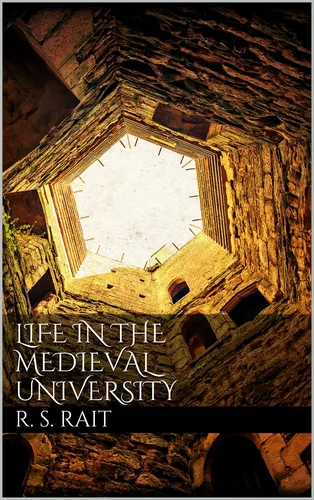Skip to the end of the images gallery Navigation umschalten
Skip to the beginning of the images gallery Navigation umschalten

Life in the Medieval University
ePUB
723,9 KB
DRM: Wasserzeichen
ISBN-13: 9783749432394
Verlag: Books on Demand
Erscheinungsdatum: 08.03.2019
Sprache: Englisch
Barrierefreiheit: Eingeschränkt zugänglich
2,99 €
inkl. MwSt.
sofort verfügbar als Download
Du schreibst?
Erfüll dir deinen Traum, schreibe deine Geschichte und mach mit BoD ein Buch daraus!
Mehr InfosAn account of life in the medieval University might well take the form of a commentary upon the classical description of a medieval English student. His dress, the character of his studies and the nature of his materials, the hardships and the natural ambitions of his scholar's life, his obligations to founders and benefactors, suggest learned expositions which might in judicious hands Extend from here to Mesopotamy, and will serve for a modest attempt to picture the environment of one of the Canterbury pilgrims.
Chaucer's famous lines do more than afford opportunities of explanation and comment; they give us an indication of the place assigned to universities and their students by English public opinion in the later Middle Ages. The monk of the "Prologue" is simply a country gentleman. No accusation of immorality is brought against him, but he is a jovial huntsman who likes the sound of the bridle jingling in the wind better than the call of the church bells, a lover of dogs and horses, of rich clothes and great feasts. The portrait of the friar is still less sympathetic; he is a frequenter of taverns, a devourer of widows' houses, a man of gross, perhaps of evil, life. The monk abandons his cloister and its rules, the friar despises the poor and the leper. The poet is making no socialistic attack upon the foundations of society, and no heretical onslaught upon the Church; he draws a portrait of two types of the English regular clergy.
Chaucer's famous lines do more than afford opportunities of explanation and comment; they give us an indication of the place assigned to universities and their students by English public opinion in the later Middle Ages. The monk of the "Prologue" is simply a country gentleman. No accusation of immorality is brought against him, but he is a jovial huntsman who likes the sound of the bridle jingling in the wind better than the call of the church bells, a lover of dogs and horses, of rich clothes and great feasts. The portrait of the friar is still less sympathetic; he is a frequenter of taverns, a devourer of widows' houses, a man of gross, perhaps of evil, life. The monk abandons his cloister and its rules, the friar despises the poor and the leper. The poet is making no socialistic attack upon the foundations of society, and no heretical onslaught upon the Church; he draws a portrait of two types of the English regular clergy.
Eigene Bewertung schreiben






Es sind momentan noch keine Pressestimmen vorhanden.